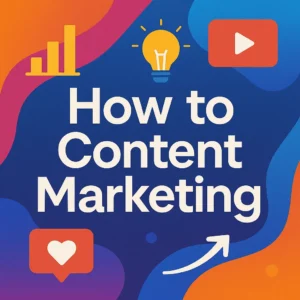
As a freelance copywriter, I vividly remember the moment that changed the trajectory of my career.
It was a crisp morning, and I sat in front of my computer, staring at a blank screen, feeling both excitement and uncertainty about my future. I had heard about the power of copywriting, its ability to captivate audiences and drive sales, but I wondered if the demand for this skill would stand the test of time.
Little did I know that my worries were soon replaced by a surge of opportunities and a steady stream of clients. It turns out that my leap into the world of copywriting was perfectly timed.
Did you know that the demand for copywriters is expected to grow to 7.6% from 2019 to 2026? The copywriting market trends indicate a growing need for persuasive writers who can craft messages that resonate with audiences and drive results.
So, if you have been hesitating about pursuing a copywriter career or questioning whether your skills are still relevant, let me assure you – they absolutely are.
In this post, I will explain why the demand for copywriting continues to thrive in 2024 and beyond.
In case you are new to copywriting, let me give you a short introduction.
If you are a veteran, feel free to skip ahead. 🤗
What is Copywriting and What Do Copywriters Do?
Copywriting is a powerful art that goes beyond just writing. It involves creating persuasive content that captivates readers and compels them to take action.
As a copywriter, our goal is to craft engaging marketing material that resonates with the audience and drives customer behavior.
We (copywriters 😌) play a pivotal role in the success of businesses by shaping the messages that promote products, services, or brands.
Through advertisements, website copy, and other marketing materials, we create compelling narratives that inform and persuade customers to make a purchase or engage with a specific brand.
[su_note note_color=”#e9e9e8″ text_color=”#5c5858″ radius=”8″]Copywriters rely on persuasive techniques to grab attention, evoke emotions, and ultimately drive conversions. One of the key elements in persuasive copy is the call to action (CTA). A CTA is a compelling statement that urges readers to take a specific action, such as “Buy Now,” “Sign up Today,” or “Learn More.” By strategically placing these CTAs throughout the copy, we can guide readers towards the desired outcome.[/su_note]
The Power of Persuasive Content
Persuasive content is at the core of copywriting. It’s about understanding the target audience, their needs, desires, and pain points, and then crafting a message that addresses those aspects.
When we use language that resonates with readers, we can influence their perception and motivate them to take action.
Effective copywriting requires strategic thinking and creativity.
It is also about finding the right words, creating an emotional connection, and highlighting the unique selling points of a product or service. Ultimately, persuasive content speaks directly to the reader, compelling them to choose a particular brand over others.
[su_quote]In the words of the famous ad man, David Ogilvy, “Great copy is the fast lane to sales, the weapon which cuts through the clutter and forces people to listen.[/su_quote]
As copywriters, we rely on various writing techniques, such as storytelling, creating a sense of urgency, using social proof, and addressing objections, to persuade readers and influence their decisions. Once you master these techniques, you can create persuasive content that drives results.
[su_table]
| Copywriting Techniques | Description |
|---|---|
| Storytelling | Using narratives to engage readers, evoke emotions, and create a memorable experience. |
| Sense of Urgency | Creating a fear of missing out (FOMO) or highlighting limited-time offers to prompt immediate action. |
| Social Proof | Using testimonials, case studies, or statistics to demonstrate the credibility and effectiveness of a product or service. |
| Addressing Objections | Acknowledging potential concerns or doubts that readers may have and providing persuasive arguments to alleviate them. |
[/su_table]
Persuasive copywriting relies on the seamless integration of compelling techniques and strategically crafted calls to action to create a robust framework that effectively influences and motivates the target audience.
Copywriting is an art skill requiring creativity, strategic thinking, and a deep understanding of human psychology.
Once you can harness the power of persuasive content, you will be able to drive customer behavior, increase conversions, and contribute to the success of businesses. 📈
The Prospects of Copywriting in 2024 and Beyond
As we look to the future, the copywriting market trends and the demand for skilled copywriters continue to soar.
Living in an era where AI technology is rapidly advancing, you might wonder about the future of copywriting. 🤔
But fear not, because copywriters like us possess a unique ability to connect with readers on a human level that artificial intelligence cannot replicate.
While certain forms of writing may be more vulnerable to automation, copywriting remains a vital component of marketing strategies. The art of persuasion and the power of human connection can never be replicated by algorithms. ✌️
Most copywriters have a special talent for crafting compelling narratives, stimulating emotions, and driving actions. They understand the power of words and how to use language to influence and persuade.
While AI may assist in generating content, it lacks the human touch that resonates with audiences. Copywriting is more than just stringing words together – it’s about understanding the psychology behind consumer behavior and tailoring messages to evoke a response. It’s about creating meaningful connections and cultivating trust.
No matter how the AI technology will evolve, I can assure you the demand for copywriters remains strong. 💪🏼
Businesses rely on us to deliver impactful content that engages their target audience and drives results. While AI technology improves efficiencies in certain areas, it cannot replace the artistry and personal touch that copywriters bring to the table.
The Power of Emotional Connection
I firmly believe that the future of copywriting lies in our ability to forge emotional connections with readers. In an increasingly AI-driven digital world, people crave authentic human experiences.
We have the unique opportunity to create that connection through their words. Copywriting goes beyond simply conveying information; it’s about capturing hearts and minds. By tapping into emotions, copywriters can compel readers to take action. We know how to speak directly to people’s desires, fears, and aspirations.
We, copywriters have the power to elicit strong emotions and inspire change, whether it’s convincing someone to make a purchase, sign up for a newsletter, or support a cause.
This ability to connect on a human level is what sets us apart and ensures its continued relevance in the ever-evolving AI-driven world. 🤖
The Added Value of Creativity
Creativity will always be the X-factor that sets copywriters apart from AI technology. The ability to think outside the box, present ideas in unique ways, and breathe life into words is a skill that cannot be replicated by machines.
We bring a wealth of creative expertise to the table – knowing how to craft compelling headlines, choose the right words to evoke emotions and deliver messages with impact.
We are adept at tailoring our writing style to different audiences and industries, employing their creativity to capture attention and leave a lasting impression.
While AI technology may generate content based on algorithms and data, it lacks the imaginative spark that only human copywriters can provide. Creativity is the driving force behind successful copywriting campaigns, making copywriters an indispensable asset in the marketing industry.
The Future of Copywriting
The future of copywriting is promising and secure.
Despite the advancements in AI technology, copywriters’ ability to forge emotional connections and apply creative thinking will continue to be in high demand. Businesses understand the value that skilled copywriters like us bring to their marketing strategies – the power to engage, persuade, and connect with their target audience.
As we move forward into 2024 and beyond, copywriting will remain an essential component of successful marketing campaigns.
The Role of Copywriters in Business Growth
As a copywriter, our role is instrumental in helping to drive business growth through the power of persuasive language and conversion-focused messaging.
We understand the needs and desires of the target audience and craft messages that resonate with them. Through carefully chosen words and compelling storytelling, we have the ability to persuade customers to take action, whether it’s making a purchase, signing up for a service, or engaging with a brand.
Copywriters use their expertise to connect with readers on an emotional level and communicate a brand’s value proposition effectively. We understand the psychology behind consumer behavior and leverage persuasive techniques to drive conversion rates.
By creating engaging content that resonates with the target audience, copywriters like us, contribute to the overall success of a business and help it thrive in a competitive marketplace.
Imagine a scenario where a business aims to launch a new product. As a copywriter, it is my responsibility to craft a captivating message that captures the attention of potential customers.
I use persuasive language to highlight the unique features and benefits of the product, making it irresistible to the target audience. Through persuasive storytelling, I create a connection between the customers’ needs and the product’s ability to fulfill them, ultimately leading to increased sales and business growth.
The Power of Persuasion
Persuasive language is the cornerstone of effective copywriting. It allows me to tap into the emotions and desires of the audience, convincing them to take the desired action. By understanding the pain points of customers and convincingly addressing them, I can position a product or service as the ultimate solution.
Through carefully chosen words, I inspire trust, credibility, and a sense of urgency, creating a compelling call to action.
Copywriters utilize various techniques such as storytelling, social proof, and the use of power words to engage readers and drive conversion rates. Once you can tap into the psychology of persuasion, you will be able to create a sense of desire and necessity around a product or service, fueling business growth.
The Role in Conversion
The ultimate goal of copywriting is to drive conversion. It’s not enough to capture the attention of readers; the power lies in persuading them to take action.
Whether it’s making a purchase, subscribing to a newsletter, or signing up for a webinar, copywriters are masters in influencing customer behavior.
Through persuasive language and compelling calls to action, copywriters guide customers through the conversion funnel.
We understand the importance of creating a seamless user experience and ensuring that the customer journey is accompanied by persuasive and convincing content at every step.
Effective copywriting has a direct impact on conversion rates and the overall success of a business. By utilizing persuasive techniques, copywriters like us not only contribute to business growth but also play a vital role in establishing a strong brand identity and fostering customer loyalty.
Breaking Into the Copywriting Field
Breaking into the copywriting field requires a combination of learning the craft, gaining experience, and finding clients. It may seem daunting at first, but with determination and the right strategies, you can launch a successful copywriting career.
Here are the key steps to get started:
1. Learn Copywriting Techniques and Principles
The first step is to educate yourself on copywriting techniques and principles. Take advantage of online classes, read books on copywriting, and listen to podcasts by experienced copywriters. Familiarize yourself with persuasive writing techniques, understanding the psychology behind effective copy, and mastering the art of creating compelling calls to action.
2. Create a Portfolio or Website
A portfolio or website is crucial for showcasing your copywriting skills and attracting potential clients. Include samples of your writing that demonstrate your ability to create persuasive and engaging copy. Highlight your strongest work and tailor it to different industries or niches to demonstrate versatility.
3. Gain Experience through Small Projects
When starting out, it’s essential to gain experience and build a reputation. Take on small copywriting projects for friends, family, or local businesses at a discounted rate or even for free. This allows you to hone your skills, build a portfolio, and gather testimonials that can strengthen your credibility as a copywriter.
4. Constantly Market Yourself
To find clients, you need to actively market yourself as a copywriter. Utilize social media platforms, professional networks like LinkedIn, and online freelance marketplaces to promote your services. Network with other professionals in related fields and attend industry events to expand your connections and increase your chances of finding clients.
5. Seek Opportunities for Growth
Continuously seek opportunities to grow as a copywriter. Stay updated with industry trends, attend workshops and conferences, and invest in your professional development. Consider joining copywriting associations and communities where you can learn from experienced professionals and gain valuable insights.
With perseverance and dedication, breaking into the copywriting field is achievable.
Remember that building a successful copywriting career takes time, so stay focused on improving your skills, gaining experience, and finding clients. As you continue to grow, your reputation as a talented copywriter will attract more opportunities and lead you towards a rewarding and fulfilling career.
Wrapping Up
Copywriting remains a dynamic and thriving field that offers an exciting and promising career path for individuals skilled in the art of persuasive writing. As businesses continue to recognize the power of persuasive content in driving sales and engaging customers, the demand for talented copywriters remains consistently high.
The current market trends indicate a strong and sustained demand for copywriters in the years to come.
As businesses compete for the attention of consumers in an increasingly digital world, skilled copywriters are essential in creating content that cuts through the noise and captures the imagination of potential customers.
Whether working as part of an in-house team or as a freelance professional, copywriters have the opportunity to make a significant impact and enjoy a profitable career.


